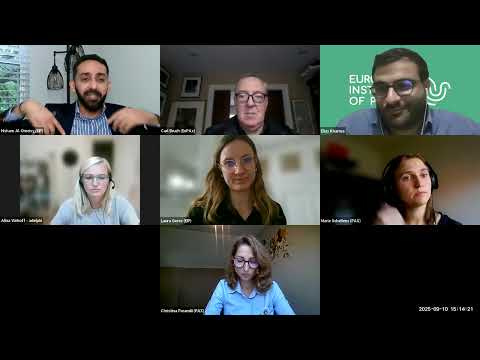From Waste to Resolution: Assessing the Impact of Armed Conflict on the Solid Waste Sector in Yemen

Throughout a decade of war, Yemen has been experiencing significant environmental degradation, both through direct impacts of armed conflict and indirectly through the decay of governance structures that could prevent and respond to environmental needs.
The conflict has eroded the capacity of public entities to protect crucial ecosystems, enact and implement relevant legislation, and provide essential services to Yemen’s population. When it comes to waste management, this has resulted in widespread illicit dumping, an uncontrolled expansion of solid waste, and a lack of adequate collection, disposal and treatment facilities. Not only do these practices contribute to severe pollution of land, water and air, posing significant risks to public health and undermining livelihoods, but also, they significantly erode trust in local and national institutions and impact social cohesion.
This report investigates Yemen’s waste crisis as a result of the armed conflict and reflects on ways to address it as a contribution to peacemaking, conflict prevention, and stabilisation. It identifies the main governance challenges in relation to effective waste management, including exponential population growth, lack of updated data, and weak institutional capacity. It analyses the environmental impact of Yemen’s solid waste crisis on air, water, and land, as well as its social and security implications ranging from outbreaks of diseases to the degradation of agricultural land and an increase in competition for resources.
The report also identifies entry points to respond to the waste management crisis and support local resilience to both environmental and conflict risks, including by:
- Fostering collaboration and social cohesion;
- Enhancing governance and building trust through technical cooperation;
- Strengthening livelihoods and enhancing economic opportunities.
Finally, the report provides recommendations for local and national policymakers, donors, and international organisations to address policy, legal and institutional gaps; implement development and humanitarian projects to mitigate the impact of the waste crisis; and integrate resilience-building initiatives with dialogue to support trust building and local ownership in waste management structures.
This report has been created in collaboration between PAX and the European Institute of Peace. It is part of the Environmental Pathways for Reconciliation in Yemen project, implemented by the European Institute of Peace with support from the German Federal Foreign Office as part of the Weathering Risk Peace Pillar led by adelphi.
Download the report
Watch the report launch
This description was extracted from EIP's website, where more information about the project and the report itself can be found.










